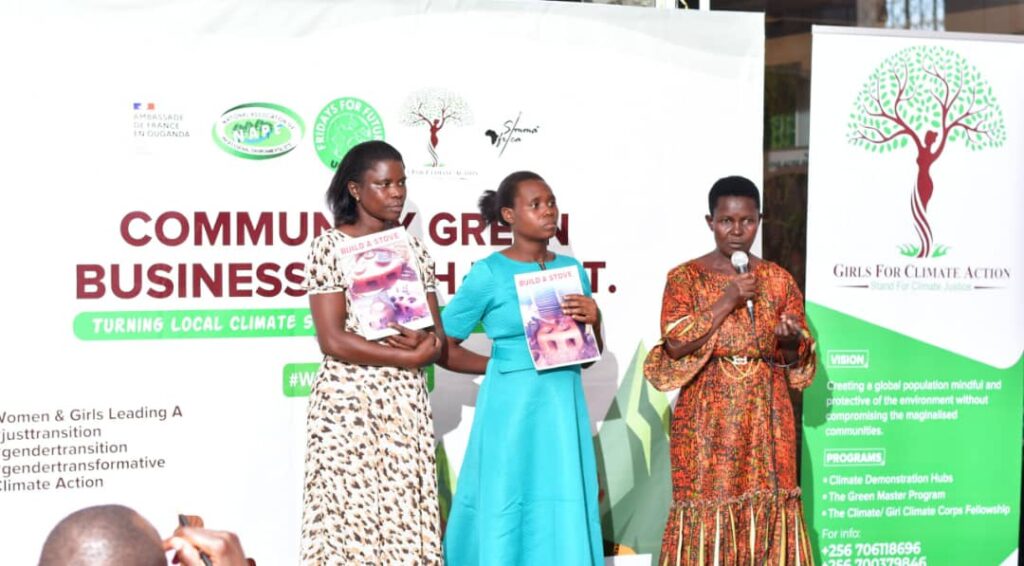Jinja: In a proactive move towards safeguarding our environment, the nonprofit organization “Girls for Climate Action” has launched an initiative aimed at educating and empowering young girls and women in the fight against climate change. Their mission focuses on fostering eco-feminism, nurturing climate leadership, and cultivating innovative solutions. The organization’s goal is to advocate for climate justice by encouraging women to develop local climate solutions and transform them into sustainable green businesses.
At a recent climate event held at Innovation Village in Jinja city, young women entrepreneurs from Budondo, Buyengo, and various parts of Jinja district showcased their newfound environmental skills. These groups have been engaged in a range of activities, including tree planting, organic vegetable cultivation, creating tea spices from avocado seeds, and designing eco-friendly cook stoves. These initiatives have not only contributed to greener communities but have also boosted household incomes.
The event received recognition from Fazira Kauma, the Deputy Mayor of Jinja City, who praised the groups for their dedication to implementing these innovative skills, as guided by environmental experts. She committed to assisting in finding markets for their products to further their economic development and encouraged them to continue their environmental conservation efforts.
Climate change expert Hanest Nabihamba emphasized the importance of organic farming as a means to combat climate change. He highlighted that climate change has led to global warming and prolonged droughts, which significantly impact local farmers due to erratic rainfall patterns. Embracing organic farming practices not only improves soil fertility but also enhances aeration.
Resty Mbwali, the Programs Coordinator for the Climate Demonstration Hub program at Girls for Climate Action, emphasized their dedication to advocating for climate justice. Their vision is to create a global population that is environmentally conscious and protective, with a particular focus on empowering women who are disproportionately affected by climate crises.
As part of the program, participants demonstrated their acquired skills and were recognized with certificates in problem identification, design thinking, team building, and market research. Additionally, they received financial support to boost their capital and increase their production capacity. This holistic approach not only addresses climate challenges but also fosters economic empowerment for women in the community.




